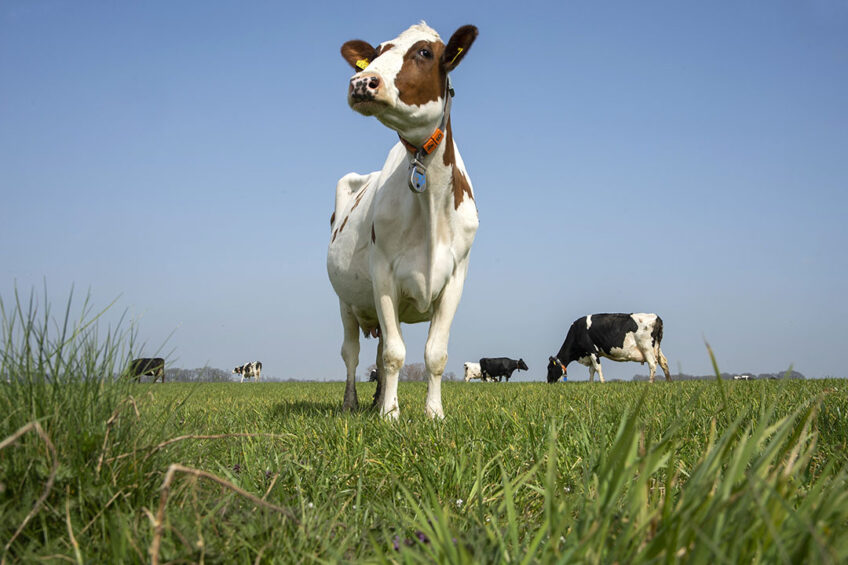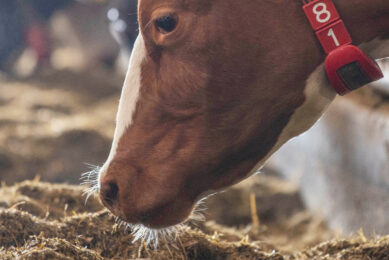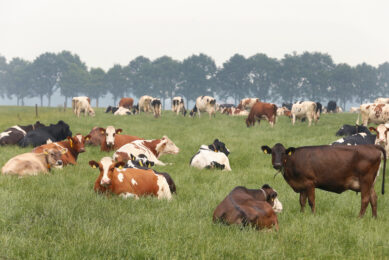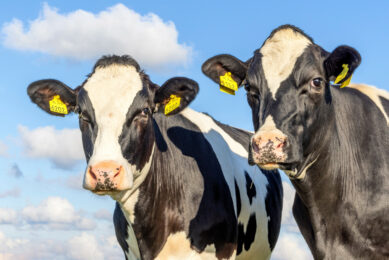Calls for new methane metric to be used for GHG calculations

Dairy farmers are urging the UK government to adopt the global warming measurement metric GWP* when measuring the impact of methane.
At present, GWP100 is seen as the accepted metric for measuring greenhouse gases, but it is seen as not being so accurate when measuring the temperature response of short-lived emissions such as methane and does not account for its removal from the atmosphere.
With pressure growing on the dairy and livestock sectors, farming is in a unique position to provide some of the solutions to reduce emissions and lower global temperatures.
The removal of short-lived gases
The National Farmers’ Union says GWP* provides a measure of the behaviour of methane in the atmosphere and its net contribution to global warming to a greater degree of accuracy. The metric takes into account the removal of short-lived gases from the atmosphere.
The call follows a move late last year by the union and the Centre for Innovation Excellence in Livestock (CIEL) to bring together scientists, stakeholders, and farmers to hear insights on using GWP* as a metric for measuring temperature impacts from GHGs and implications for emissions reduction.
Calls from the NFU
Following the roundtable, the NFU has concluded that GWP* provides a more accurate representation of the current contribution of UK ruminant agriculture to climate change. It is calling for:
- A unified approach to dual accounting with government and industry reporting on emissions from agriculture at the national scale using both GWP100 and GWP*.
- Solutions for incorporating GWP* into on-farm GHG calculators so producers are not disadvantaged for expanding when national herd emissions remain unchanged or are decreasing due to uptake of new tools and technology.
- Consistent and simple messaging to consumers on the temperature impacts from methane and the biogenic carbon cycle, including finding a more suitable way for the carbon footprint of a food product to be measured.
- The impact of genetics and selective breeding on reducing methane emissions to be measured with GWP100 and GWP*.
- A joined-up approach to GHGs across government departments.
Urgent action
Tom Bradshaw, NFU deputy president, said: “Urgent action is needed now to improve productivity, conserve the carbon already in pastures and grasslands and store more carbon for the good of society. Government support is needed for farmers to access the capital investment they need to implement interventions to reduce methane and other greenhouse gases. The NFU will continue to engage with Defra on how methane reductions are recorded, incentivised and valued by both the public and private markets.”
Recent scientific papers, including one from the University of Oxford, Cranfield University and the University of Canterbury in New Zealand, titled ‘Climate Metrics for Ruminant livestock’ said the conventional Global Warming Protocol can be misleading when applied to methane emissions, especially when these are being reduced. The paper, published last July, said “a revised usage of GWP, denoted GWP*, which uses the same metric values interpreted in a new way, provides a more accurate indication of the impact of short-lived pollutants on global temperature.”
Join 13,000+ subscribers
Subscribe to our newsletter to stay updated about all the need-to-know content in the dairy sector, two times a week.










